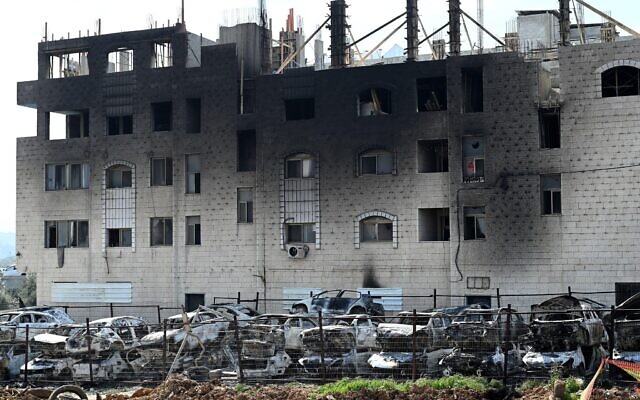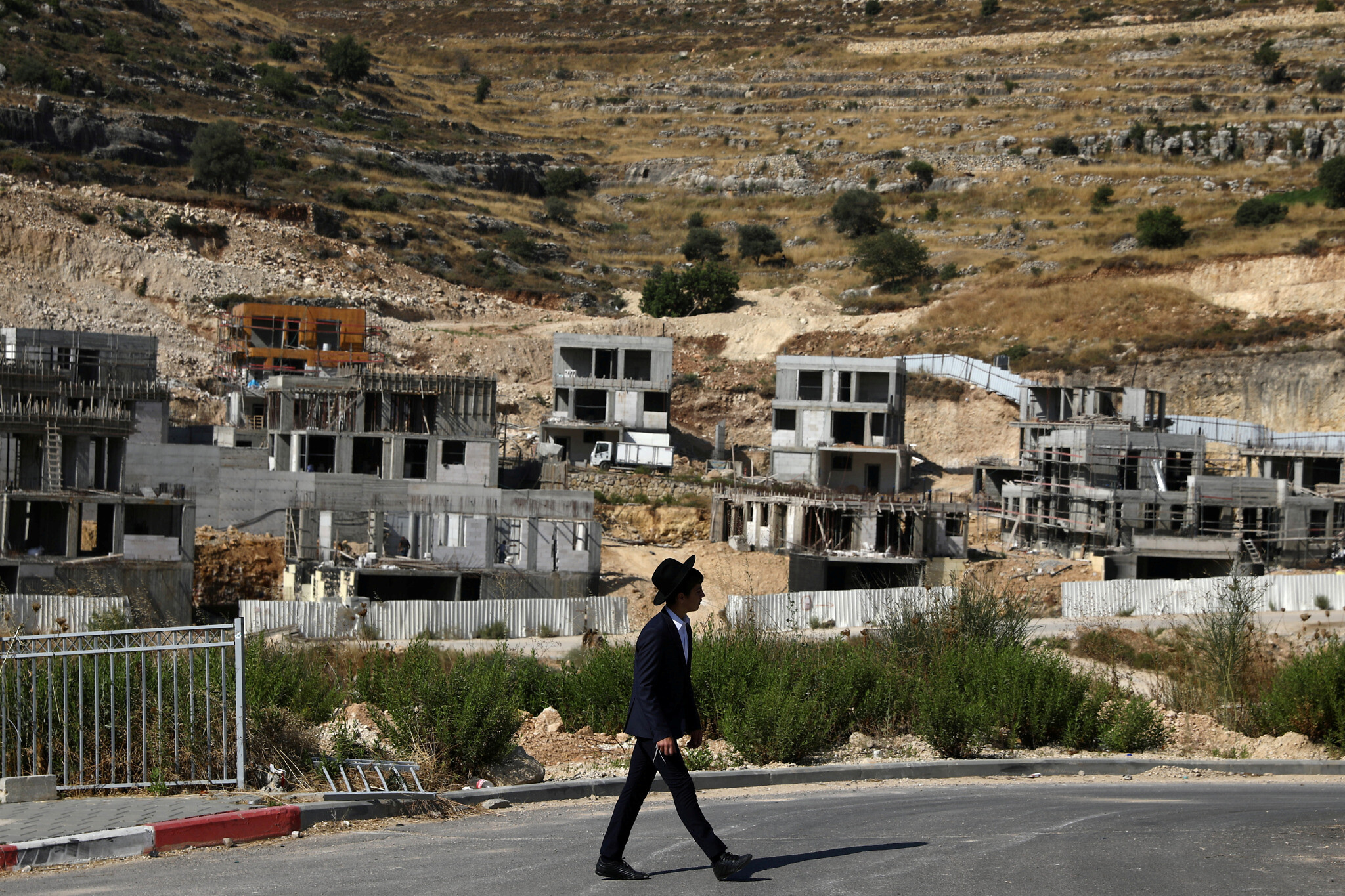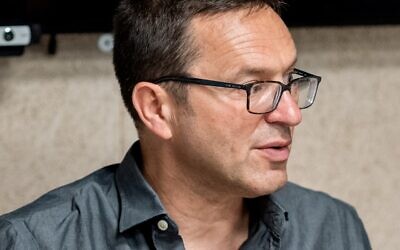OPINION: After Hawara, the fight is now for Israel’s future
The occupied territories have come to Israel writes Richard Miron, former spokesperson for the UN Secretary General’s Middle East envoy.

The news coming out of Israel of settlers running amok in the Palestinian town of Hawara in the West Bank, killing one man, beating numerous others, torching homes and destroying cars, is horrifying.
The incident has been widely called a ‘pogrom’ and that description fits the bill. The rampage by hundreds of armed settlers followed the earlier shooting to death by a Palestinian gunman of two Israelis who came from a nearby settlement.
After the fires had been extinguished and the injured had been treated, a few Israeli rioters were arrested, then released without charge.
This is shocking but unsurprising.

I spent many years in the West Bank – both as a reporter and later as a UN official – seeing the everyday impact of the occupation and the settlement policy.
I recall in the late 1990s covering the story of Palestinian olive trees being gratuitously chopped down. This was done by settlers to intimidate and drive Palestinians from the land the settlers desired. I went out to a field out with an old man – a retired school teacher – to see his trees which sat directly next to a small settlement called Rehalim.
Read this week’s Jewish News HERE
Upon arrival we found multiple stunted tree trunks, cut off at their base with branches and olives lying spread on the ground.
I spent many years in the West Bank – both as a reporter and later as a UN official – seeing the everyday impact of the occupation and the settlement policy.
The wood shavings were still moist to the touch. Just above us on a slight rise sat a few Israelis next to their large homes. I recall one was in uniform – probably a reservist. I called up to him in Hebrew asking what had happened and why. He cast his gaze imperiously downwards and before turning away he said bluntly that I was disturbing his pastoral view.

This incident was in many respects unexceptional. Most settlers’ contempt for those around them is routine.
Palestinians find their water sources suddenly diverted, their fields taken over, and their roads blocked.
To make things worse the IDF stands as a silent accomplice. Its orders (in defiance of international law) are to protect Israeli citizens, not defend Palestinians from abuse.
That is why you will see numerous TV pictures of settlers attacking Palestinians, men, women, and children, while Israeli soldiers look on as bystanders.
The occupied territories really are the Wild West, where there is one law for Jews to do very much as they please, and another for Palestinians to do as they are told – or else. This stands in contrast to the situation within Israel itself where anyone acting with violence or damaging property will face the legal consequences.
Those sitting at the highest levels of government have been nourished on a diet of extreme religious nationalism. Itamar Ben Gvir, the new minister of national security, has a lengthy charge sheet for incitement, violence and more.
For years Israeli officials have acted as if these two situations in the West Bank and in Israel can co-exist without one impacting on the other. But now we can see the inevitable consequences of years of occupation, first in acting as a laboratory for nurturing Jewish extremism, and second as a malevolent force in undermining the basis of Israeli democracy.
The physical distance between these two words is small. My morning cup of coffee would still be warm from where I bought it in north Tel Aviv to when I crossed the Green Line into the West Bank. But now the occupied territories have come to Israel.
Those sitting at the highest levels of government have been nourished on a diet of extreme religious nationalism. Itamar Ben Gvir, the new minister of national security, has a lengthy charge sheet for incitement, violence and more.
His cabinet colleague, Bezalel Smotrich, who has called for the ‘ethnic cleansing’ of Arabs, is now largely responsible for the administration of the West Bank, At the head of the table sits Benjamin Netanyahu, who while under indictment for corruption, proposes upturning the judicial system to put politicians like him in charge. Netanyahu has also never given up his ambition to deny the Palestinians a state of their own and stymie any agreement through settlement building.
So, the growing sense of crisis both within Israel and the West Bank feels inevitable. It is the consequence of decisions by successive governments to maintain two contradictory and irreconcilable realities – and that is a human – and Jewish – tragedy.
Just following the violence in Hawara, I saw a Facebook post from my cousin Tova in Israel. She wrote: ‘I feel the need this morning to apologise to all my friends who left the country because they could no longer bear the burden of occupation.
You’ve already seen what I’m only seeing now. You shouted, you cried, but I couldn’t internalise this reality. I told myself that the situation is complex and racism is deep on both sides, but the bottom line is, it can’t be justified. The occupation has indeed corrupted every good part of our people.’
Tova grew up on a kibbutz founded by the survivors of the Warsaw Ghetto. She is named after her grandmother murdered by the Nazis.
For her, and for millions of Israelis like her, the current situation presents a choice; occupation or a democratic and decent State of Israel. The choice is now for Israel’s future.
• Richard is a former BBC reporter based in Israel and former spokesperson for the UN Secretary General’s Middle East envoy

Thank you for helping to make Jewish News the leading source of news and opinion for the UK Jewish community. Today we're asking for your invaluable help to continue putting our community first in everything we do.
For as little as £5 a month you can help sustain the vital work we do in celebrating and standing up for Jewish life in Britain.
Jewish News holds our community together and keeps us connected. Like a synagogue, it’s where people turn to feel part of something bigger. It also proudly shows the rest of Britain the vibrancy and rich culture of modern Jewish life.
You can make a quick and easy one-off or monthly contribution of £5, £10, £20 or any other sum you’re comfortable with.
100% of your donation will help us continue celebrating our community, in all its dynamic diversity...
Engaging
Being a community platform means so much more than producing a newspaper and website. One of our proudest roles is media partnering with our invaluable charities to amplify the outstanding work they do to help us all.
Celebrating
There’s no shortage of oys in the world but Jewish News takes every opportunity to celebrate the joys too, through projects like Night of Heroes, 40 Under 40 and other compelling countdowns that make the community kvell with pride.
Pioneering
In the first collaboration between media outlets from different faiths, Jewish News worked with British Muslim TV and Church Times to produce a list of young activists leading the way on interfaith understanding.
Campaigning
Royal Mail issued a stamp honouring Holocaust hero Sir Nicholas Winton after a Jewish News campaign attracted more than 100,000 backers. Jewish Newsalso produces special editions of the paper highlighting pressing issues including mental health and Holocaust remembrance.
Easy access
In an age when news is readily accessible, Jewish News provides high-quality content free online and offline, removing any financial barriers to connecting people.
Voice of our community to wider society
The Jewish News team regularly appears on TV, radio and on the pages of the national press to comment on stories about the Jewish community. Easy access to the paper on the streets of London also means Jewish News provides an invaluable window into the community for the country at large.
We hope you agree all this is worth preserving.





















